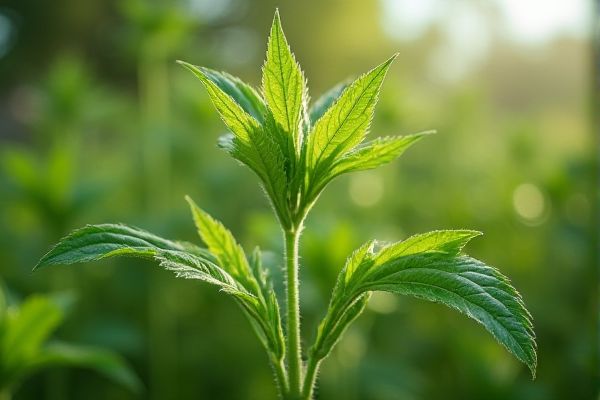
Ethiopia's plant science sector is experiencing growth, leading to various job opportunities in research, agriculture, and biotechnology. Positions are available in academic institutions, government agencies, and private companies focusing on crop improvement, pest management, and sustainable agricultural practices. Skills in molecular biology, agronomy, and ecological research are increasingly sought after, reflecting the need for innovative solutions to enhance food security. Engaging in community outreach and policy development can also create pathways for careers aimed at promoting sustainable agriculture and environmental conservation.
Job Description
Plant science jobs in Ethiopia focus on enhancing agricultural productivity through research and development. Positions may involve the study of crop varieties, pest management, and sustainable farming practices tailored to local conditions. In this role, you will collaborate with local farmers and organizations to implement innovative techniques that improve yield and resilience. Opportunities exist within government agencies, NGOs, and research institutions, all aimed at addressing food security and promoting sustainable agriculture in the region.
Requirement
Plant science jobs in Ethiopia often require a degree in agriculture, horticulture, or a related field, emphasizing practical knowledge of plant biology and cultivation techniques. Employers typically seek candidates with hands-on experience in fieldwork or laboratory settings, highlighting the importance of research skills and understanding of local crops and ecosystems. Proficiency in agricultural technology and familiarity with sustainable farming practices can be significant assets in the job market. A strong commitment to community engagement and development is beneficial, as many positions involve collaboration with local farmers and agricultural organizations.
Salary and Perks Expected
Plant science jobs in Ethiopia offer competitive salaries that vary based on experience, education, and specific roles within agricultural organizations or research institutions. Entry-level positions typically start at a modest rate, while experienced professionals can earn significantly more, reflecting the growing demand for expertise in sustainable agriculture and crop improvement. Benefits often include health insurance, retirement plans, and opportunities for continuing education and professional development. Engaging in this field contributes to essential agricultural advancements that can enhance food security and economic growth in Ethiopia.
Similar Job Names
- Plant Scientist
- Agronomist
- Horticulturist
- Plant Breeder
- Research Assistant
- Agricultural Extension Officer
- Soil Scientist
- Crop Protection Specialist
- Seed Technician
- Agricultural Biotechnologist
- Sustainable Agriculture Consultant
- Pomologist
- Ethnobotanist
- Plant Pathologist
- Viticulturist
- Weed Scientist
- Entomologist
- Agricultural Engineer
- Irrigation Specialist
- Agroecologist
Job Expectation Concept
Plant science jobs in Ethiopia focus on various aspects, including agriculture, research, and environmental conservation. Positions often require expertise in soil management, crop improvement, and sustainable farming practices to address local challenges. Your role can significantly impact food security and agricultural productivity in a country heavily reliant on its agricultural sector. Networking with local universities, research institutions, and government agencies can enhance your opportunities in this growing field.
Career Advantage and Weakness
Plant science jobs in Ethiopia offer significant career advantages, including opportunities for advancement in a rapidly developing agricultural sector. The country's diverse climatic zones and ecosystems provide researchers and practitioners the chance to engage in impactful projects that enhance food security and sustainable practices. However, challenges such as limited funding and resources can hinder research initiatives and job growth. Staying informed about local and international agricultural trends can help you navigate these obstacles and maximize your career potential in this vital field.
Important Thing Must Know
Plant science jobs in Ethiopia play a vital role in agricultural development and sustainability. The country has diverse agro-ecological zones, offering opportunities for research in crop improvement and pest management. There is a growing demand for professionals who can contribute to food security and agricultural innovation. Government initiatives and collaborations with international organizations are enhancing training programs and resources for aspiring plant scientists. Your work in this field can lead to meaningful impacts on local communities and the economy through improved agricultural practices.
Alternative Career Options
Plant science professionals in Ethiopia can explore various alternative career options beyond traditional roles in research and academia. Opportunities exist in sustainable agriculture, where you can work with farmers to implement practices that enhance crop yields while preserving the environment. The growing demand for organic farming and agroecology offers avenues to contribute to food security and community health. Additionally, roles in agricultural technology and biotechnology companies are emerging, focusing on innovations that improve plant resilience and productivity.
Companies List
- Ethiopian Institute of Agricultural Research (EIAR)
- Ethiopian Biotechnology Institute (EBTi)
- Addis Ababa University, College of Agriculture and Environmental Sciences
- Hawassa University, Faculty of Agriculture
- Jinka University, College of Natural Resources and Environmental Studies
- Syngenta Ethiopia
- Ethiopian Coffee and Tea Authority
- World Bank, Ethiopia Agriculture Sector
- International Livestock Research Institute (ILRI)
- African Union, Inter-African Bureau for Animal Resources (AUIBAR)
List of Ideal City
In Ethiopia, Addis Ababa stands out as a hub for plant science jobs due to its numerous research institutions and universities dedicated to agricultural innovation. Bahir Dar, known for its proximity to Lake Tana and fertile land, offers unique opportunities in agricultural research and development. Mekelle is rapidly growing as a center for agricultural technology and training, fostering a strong community of plant scientists. Dire Dawa, with its strategic location and growing agricultural sector, is also becoming increasingly relevant for those seeking careers in plant science.
 jobs-ethiopia.com
jobs-ethiopia.com